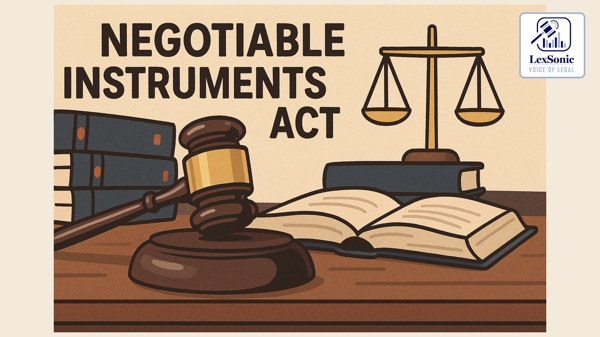Vicarious Liability Under the NI Act: Clarifying the Responsibility of Non-Executive Directors.
13 February 2025
Criminal Appeals & Suspension of Sentence >> Criminal Law | Negotiable Instruments Act >> Criminal Law
A recent Supreme Court of India judgment has shed light on the complex issue of vicarious liability under Section 141 of the Negotiable Instruments Act, 1881 (NI Act), specifically concerning non-executive directors. This article analyzes the court's decision, emphasizing the distinction between holding a directorship and being actively involved in a company's financial operations.
Background of the Case:
The appellant, an independent non-executive director of M/s D.S. Kulkarni Developers Ltd., faced criminal proceedings under Section 138 read with Section 141 of the NI Act. The complaints alleged dishonor of cheques issued by the company. The High Court dismissed the appellant's petition to quash the proceedings, stating that the director's role was a matter for trial.

Appellant's Arguments:
The appellant argued that as a non-executive director, they had no involvement in the company's financial affairs and did not sign or authorize the issuance of the dishonored cheques. They pointed out their resignation predated the offenses and highlighted the lack of specific averments in the complaints detailing their role in the cheque dishonor. They emphasized that Section 141 of the NI Act imposes vicarious liability only on directors responsible for the company's business conduct at the relevant time.
Respondent's Arguments:
The respondents contended that the High Court rightly determined that the appellant's role should be examined during trial. They argued that vicarious liability under Section 141 could extend to all directors, irrespective of their executive or non-executive status, and that the appellant, by virtue of their position, was part of the company's decision-making structure.
Supreme Court's Analysis and Findings:
The Supreme Court reiterated established jurisprudence that mere designation as a director does not automatically translate to liability under Section 138/141 of the NI Act. Liability hinges on specific allegations demonstrating the director's active involvement in the company's affairs at the relevant time.
The court cited several key precedents:
- National Small Industries Corporation Limited v. Harmeet Singh Paintal: This case emphasized the need for specific averments in the complaint detailing the director's role and how they were in charge of the company's business. It clarified that vicarious liability must be pleaded and proved, not inferred.
- N.K. Wahi v. Shekhar Singh: This judgment stressed the importance of clear and unambiguous allegations in the complaint regarding the director's role and responsibility.
- S.M.S. Pharmaceuticals Ltd. v. Neeta Bhalla: This case established that mere designation as a director is insufficient; the complaint must specify the director's role and responsibility.
- Pooja Ravinder Devidasani v. State of Maharashtra: This ruling recognized the distinct role of non-executive directors in governance and emphasized that liability under Section 141 requires active involvement in the company's business at the relevant time.
Applying these principles to the present case, the Supreme Court noted that the appellant was a non-executive director with no financial responsibilities, did not sign the cheques, and resigned before the offenses occurred. The complaints lacked specific averments regarding the appellant's responsibility for the dishonored cheques.
Conclusion:
The Supreme Court concluded that the appellant could not be held vicariously liable under Section 141 of the NI Act. The complaints failed to meet the legal requirements for implicating the appellant. The court quashed the criminal proceedings against the appellant, setting aside the High Court's judgment.
Implications of the Judgment:
This judgment clarifies the scope of vicarious liability under the NI Act for non-executive directors. It reinforces the principle that mere designation is insufficient for holding a director liable. Active involvement in the company's financial operations or day-to-day business conduct at the relevant time is crucial. This ruling provides important safeguards for non-executive directors, protecting them from unwarranted prosecution based solely on their title. It also highlights the importance of precise and specific allegations in complaints filed under Section 138/141 of the NI Act.
Section 138, Negotiable Instruments Act - 1881
Section 141, Negotiable Instruments Act - 1881
